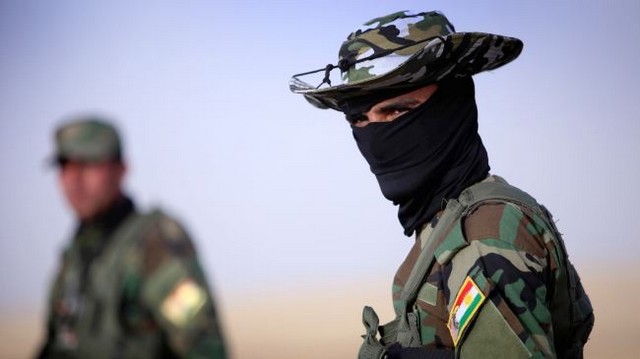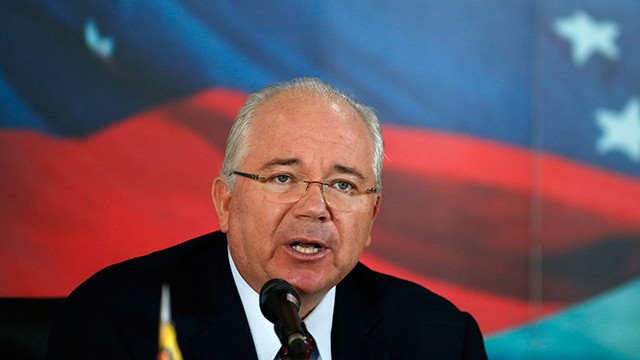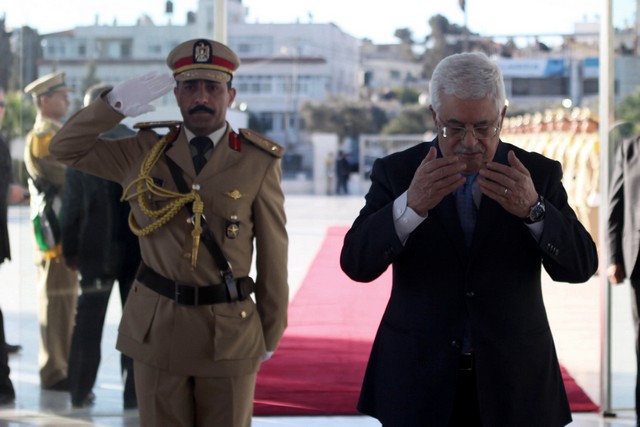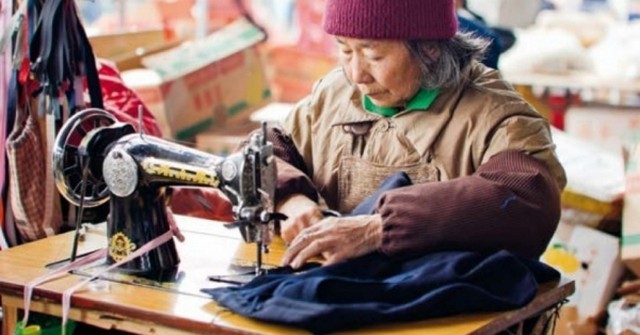By Eric Draitser
In the midst of the war against ISIS (Islamic State) now taking place in both Iraq and Syria, a possible shifting of alliances that could fundamentally alter the balance of power in the region is taking place, and no one seems to have noticed. Specifically, the burgeoning relationship between the Islamic Republic of Iran and the semi-autonomous Kurdistan region of Northern Iraq has the potential to remake the political landscape of the Middle East. Naturally, such a development is part of a broader geopolitical gambit by Iran, and it will have significant ramifications for all regional actors. However, it is Turkey, the gulf monarchies, and Israel that potentially have the most to lose from such a development.
While Iran has long-standing disputes with elements of its own Kurdish minority, it has demonstrably taken the lead in aiding Iraqi Kurds in their war against extremist fighters loyal to ISIS. As Kurdish President Massud Barzani explained in late August, “The Islamic Republic of Iran was the first state to help us…and it provided us with weapons and equipment.” This fact alone, coupled with the plausible, though unconfirmed, allegations of Iranian military involvement on the ground in Kurdish Iraq, demonstrates clearly the high priority Tehran has placed on cooperation with Barzani’s government and the Kurdish people in the fight against the Saudi and Qatari-backed militants of ISIS. The question is, why? What is it that Iran hopes to gain from its involvement in this fight? Who stands to lose? And how could this change the region?
The Iran Equation
While many eyebrows have been raised at Iranian involvement on the side of the Kurds in the fight against ISIS, perhaps it should not come as a much of a surprise. Tehran has steadily been shoring up its relations with Erbil, both out of a genuine desire to form an alliance, and as a counter-measure against the ouster of their close ally and partner, former Iraqi Prime Minister Nouri al-Maliki.
Since the US war on Iraq began in 2003, and especially after US troops left in 2011, Iran had positioned itself as a key, and in some ways dominant, actor in Iraq. Not only did it have significant influence with Maliki and his government, it also saw in Iraq an opportunity to break out of the isolation imposed upon it by the US, EU and Israel over its disputed nuclear program. For Iran, Iraq under Maliki was a bridge both physically (linking Iran with its allies in Syria and Southern Lebanon) and politically (serving as an intermediary with the West in negotiations). In addition, Maliki’s Iraq was to be the linchpin of a new economic strategy which included the proposed Iran-Iraq-Syria pipeline, a project which would have provided Iran overland access to the European energy market, thereby allowing the Islamic Republic to overtake Qatar as the region’s dominant gas exporter to Europe.
Additionally, Iraq was in many ways the front line in Iran’s continued struggle against western-backed terror groups, the most infamous of which is the Mujahideen-e-Khalq (MEK). It was Maliki’s government which closed down Camp Ashraf, the notorious base from which the MEK operated, conducting their continued terror war against Iran. It is of course no secret that MEK is the darling of the neocon establishment, lauded by nearly every architect, supporter, and enabler of Bush’s Iraq War.
Seen in this way, Iraq was both an economic and political necessity for Iran, one that could not simply be allowed to slip back into the orbit of Washington. And so, with the emergence of ISIS, and the subsequent toppling of the Maliki government through behind-the-scenes pressure and a comprehensive propaganda campaign that portrayed him as a brutal dictator on par with Saddam Hussein, Iran clearly needed to recalculate its strategy. Knowing that it could not trust the new government in Baghdad, which was more or less handpicked by the US, Tehran clearly saw a new opportunity in Kurdistan.
Why Kurdistan?
While the imperatives for Iran to engage in Iraq are clear, the question remains as to what specifically Kurdistan offers Tehran both in terms of strategic necessity and geopolitical power projection. To understand the Iranian motive, one must examine how Kurds and Kurdistan fit into Iran’s national and international relations.
First and foremost is the fact that Iran, like Iraq, Syria and Turkey, is home to a considerable Kurdish minority, one that has consistently been manipulated by the US and Israel, and used as a pawn in the geopolitical chess match with the Islamic Republic. With the chaos in Iraq and Syria, and the continued oppression and marginalization of the Kurdish minority in Turkey, it seems that an independent Kurdistan, one that could fundamentally alter the map of the region, is becoming an ever more viable possibility. So, in order to prevent any possible destabilization of Iran and its government from the Kurds, Tehran seems to have begun the process of allying with, as opposed to aligning against, Kurdish interests in Iraq. Likely, Iran sees in such an alliance a tacit, if not overt, agreement that any Kurdish independence will not be used as a weapon against Tehran.
Secondly, by siding with Barzani’s government and providing material and tactical support, Iran is clearly jockeying for position against its regional rivals. On the one hand, Iran recognizes the threat posed by NATO member Turkey whose government, led by Erdogan and Davutoglu, has been intimately involved in the war on Syria and the arming and financing of ISIS and the other terror groups inside the country. While Ankara has publicly proclaimed its refusal to participate in military action in Syria, its actions have shown otherwise. From hosting terrorists to providing space to CIA and other intelligence agencies involved in fomenting civil war in Syria, Turkey has shown itself to be integral to the US-NATO-GCC attempt to effect regime change.
It is, of course, not lost on the Kurds precisely what Turkey has done, and continues to do. Not only has Turkey waged a decades-long war against the Kurdish Workers Party (PKK), it has steadfastly refused to treat its Kurdish minority as anything other than second class citizens. And now, given the central role that Erdogan, Davutoglu & Co. have played in fomenting the war in Syria, they allow their terrorist proxies of ISIS to massacre still more Kurds. It should therefore come as no surprise that many Kurds view Turkey, not Syria or Iran, as the great threat and enemy of their people. And so, Iran steps into the vacuum, offering the Kurds not only material, but political and diplomatic support.
From Tehran’s perspective, Turkey continues to be the representative of the US-NATO-GCC agenda; Ankara has played a key role in blocking Iranian economic development, particularly in regard to energy exports. It should be remembered that Turkey is one of the principal players in the Caspian energy race, providing the requisite pipeline routes for both the TANAP (Trans-Anatolian Pipeline) and Nabucco West pipeline project, among a basket of others. These projects are supported by the US as competition to both Russia’s South Stream (a pipeline which would bring Russian gas to Southern Europe) and the proposed Iran-Iraq-Syria pipeline. Essentially then, Turkey should be understood as a powerful chess piece used to block Iranian moves toward economic independence and regional hegemony.
Iranian overtures toward the Kurds, and involvement in the fight against ISIS generally, must also be interpreted as a check against Iran’s other regional rivals in Saudi Arabia and Qatar. Both countries have been implicated in organizing and financing many of the terror groups and networks that now operate under the “ISIS” banner, using them as proxies to break the “Resistance Axis” that includes Hezbollah, Syria’s Baath Party, and Iran.
The economic and political interests of Saudi Arabia and Qatar, more specifically the families ruling those countries, are self-evident; maintaining their grip on power is only possible by maintaining dominance over the energy trade. In Iran, the gulf monarchies see a powerful, resource-rich nation that, given the opportunity to develop economically, would likely displace them as the regional leader. And so, naturally, they must activate their jihadi networks to deprive Iran of its two strategic allies in Iraq and Syria, thereby severing the link with Hezbollah and breaking the arc of Shia dominance. It is basic power politics, only it is now Kurds paying with their lives for the petty aspirations of gulf monarchs.
Finally, Iranian moves in Kurdistan represent a new phase of the long-standing proxy war between Iran and Israel. It is no secret that, as mentioned above, certain Kurdish factions and organizations have long been quite close with Tel Aviv. In fact, the decades-long relationship between the two is one of the primary reasons for Kurdish acquiescence to western designs against both Iraq and Iran. As pro-Israeli blogger and self-proclaimed “prodigious savant” Daniel Bart wrote:
There was very close cooperation between Israel and the KDP in the years 1965-75. During most of that time there were usually some 20 military specialists stationed in a secret location in southern Kurdistan. Rehavam Zeevi and Moshe Dayan were among Israeli generals who served in Kurdistan…The Israelis trained the large Kurdish army of Mustafa Barzani and even led Kurdish troops in battle…The “secret” cooperation between Kurdistan and Israel is mainly in two fields. The first is in intelligence cooperation and this is hardly remarkable as half the world including many Muslim states have such relationships with Israel. The second is influence in Washington.
Bart, relying on the work of noted Israeli author and researcher Shlomo Nakdimon, is quite correct to point out that Israeli intelligence, including some of the most celebrated (or infamous, depending on one’s perspective) Israeli leaders, have had intimate ties with the Kurdish leadership for more than half a century. Though the documented evidence is scanty, those who follow the relationship closely generally believe that the level of cooperation between Tel Aviv and Erbil has increased dramatically, particularly since the US invasion of Iraq in 2003. Indeed, Israel likely has covert operatives and intelligence officers on the ground in Kurdistan, and has for some time. This is certainly no secret to the Iranians who are convinced (and are likely correct) that many of the assassinations, bombings, and other terrorist acts perpetrated by Israel have been planned and organized from Kurdish territory.
Such thinking is backed up by the investigative reporting of Pulitzer Prize-winning journalist Seymour Hersh who noted in 2004:
“The Israelis have had long standing ties to the Talibani and Barzani clans [in] Kurdistan and there are many Kurdish Jews that emigrated to Israel and there are still a lot of connection. But at some time before the end of the year [2004], and I’m not clear exactly when, certainly I would say a good six, eight months ago, Israel began to work with some trained Kurdish commandoes, ostensibly the idea was the Israelis — some of the Israeli elite commander units, counter-terror or terror units, depending on your point of view, began training — getting the Kurds up to speed.”
Iran’s leaders have been keenly aware of the presence of Israeli Special Forces and intelligence on the ground in Kurdistan, knowing that ultimately it is Tehran in the crosshairs. And so, Iran has clearly taken this brief window as an opportunity to assert its own influence in Kurdistan, inserting itself into what had been, until now, the domain of the Israelis. It remains to be seen how Tel Aviv will respond.
While the world watches with horror the continued advance of ISIS in both Iraq and Syria, there is another story unfolding. It is the story of how Iran, long since demonized as the regional pariah, has turned the chaos meant to destroy it and its allies into a possible springboard for future cooperation. It is the story of how terrorism and proxy war has brought former enemies closer together, while exposing before the world the treachery of governments once seen as Iranian allies. It is the story of alliances shifting like desert sands. But in this story, the next chapter has yet to be written.
Eric Draitser is an independent geopolitical analyst based in New York City, he is the founder of StopImperialism.org and OP-ed columnist for RT, exclusively for the online magazine “New Eastern Outlook”.
16 October 2014
http://journal-neo.org/










